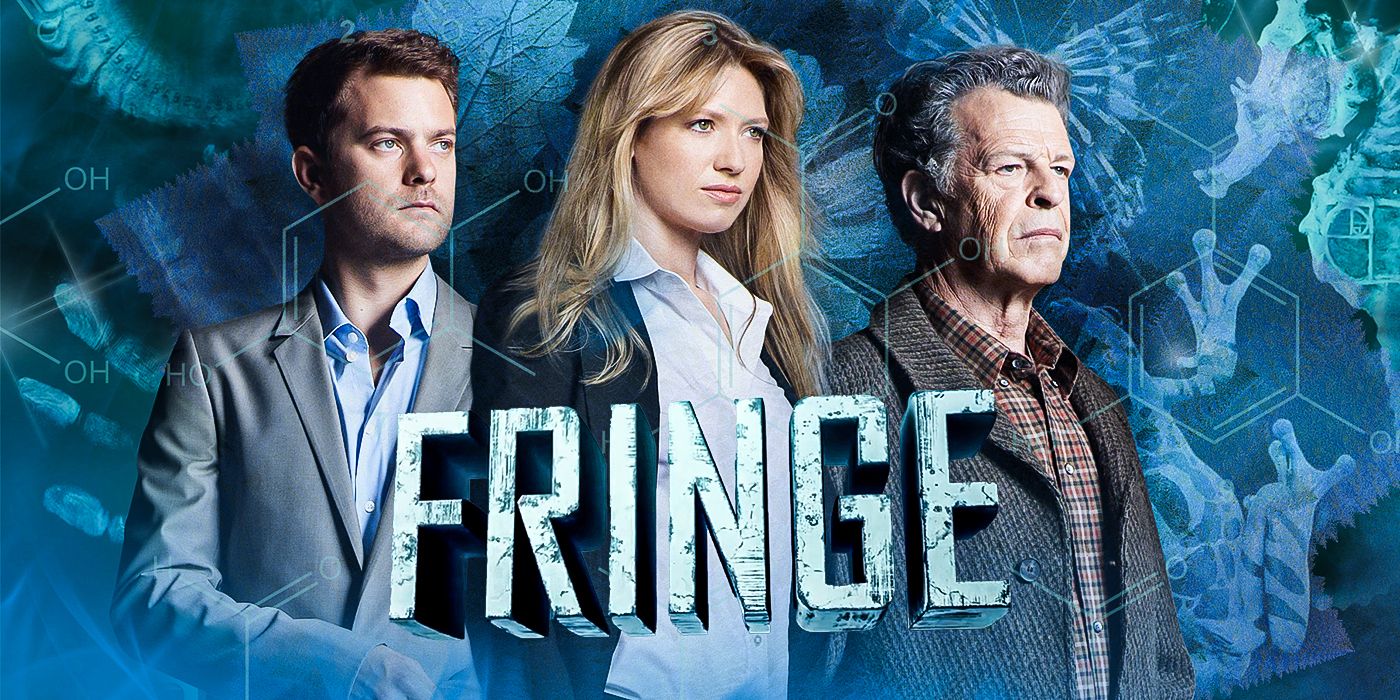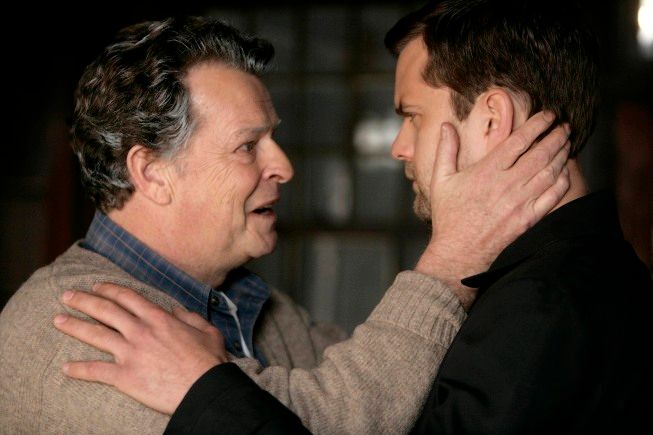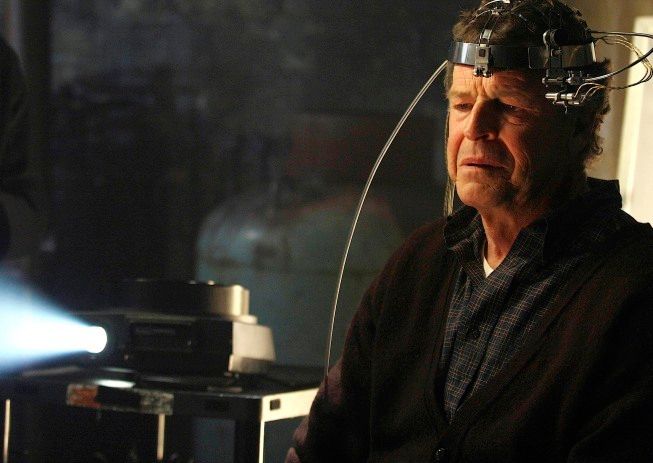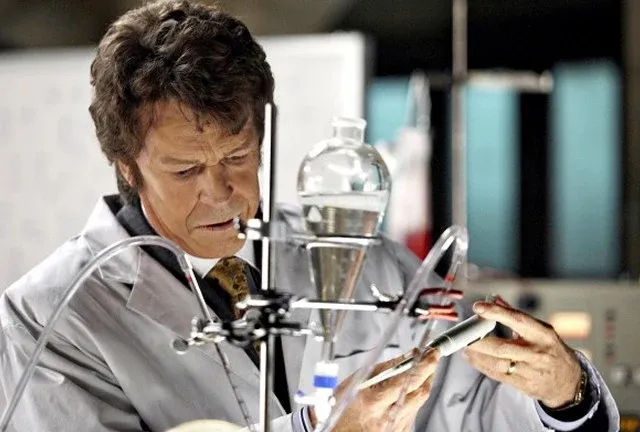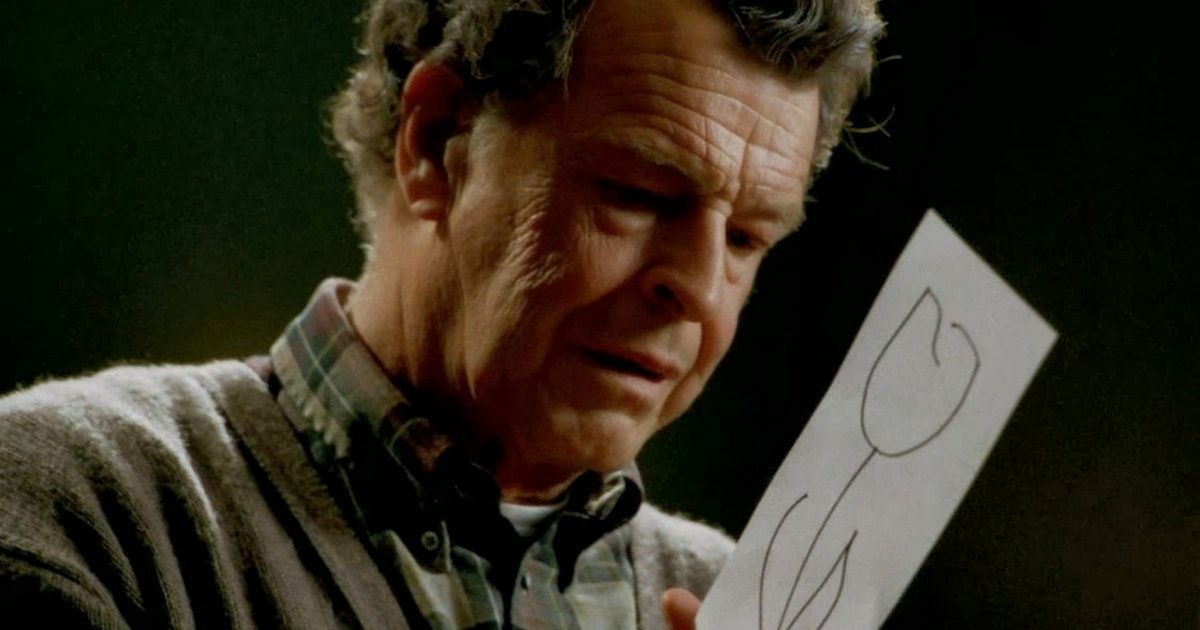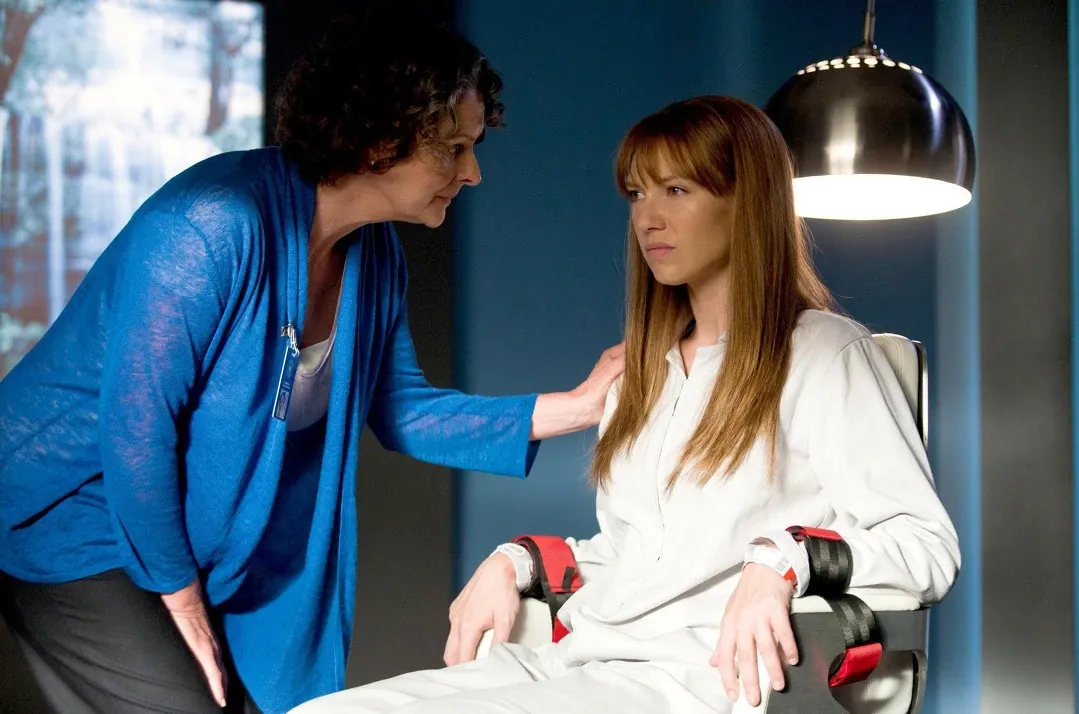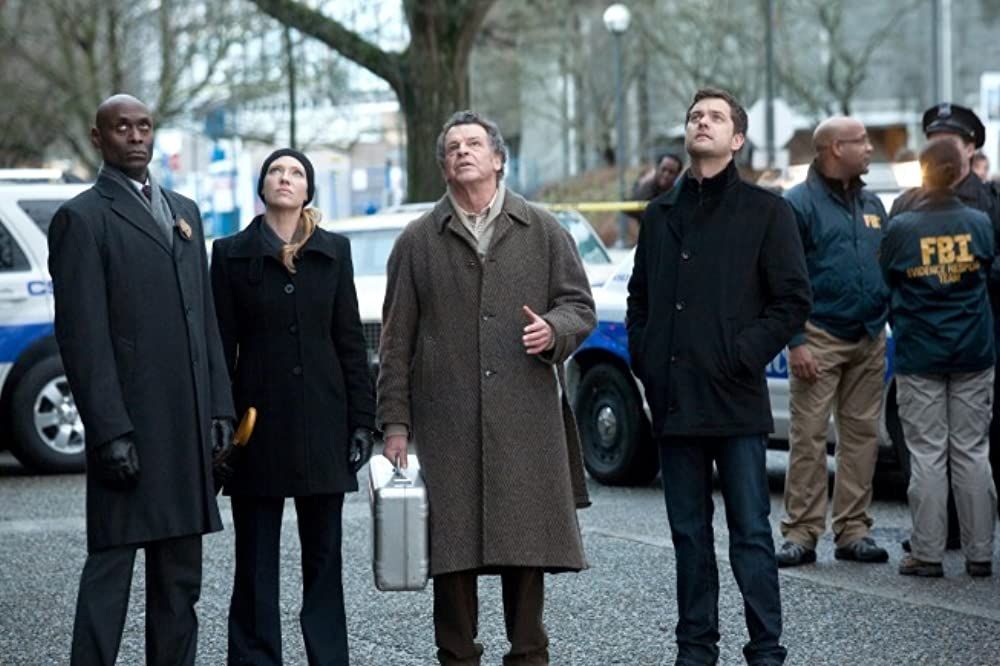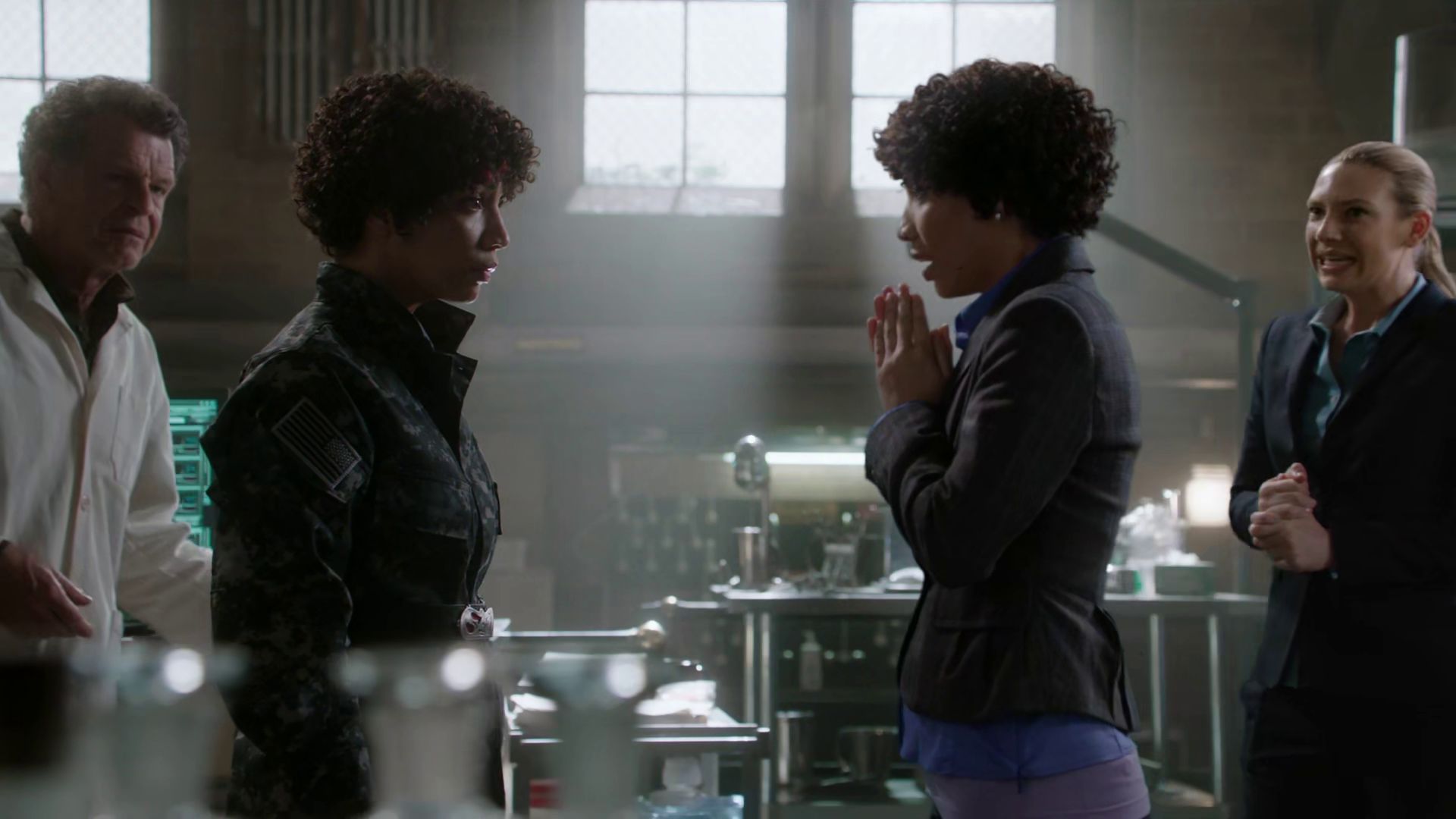Despite closing out its five season run in 2013, Fringe has managed to stay in the hearts and minds of its rabid fans thanks to its memorable storytelling as well as its presence on streaming platforms like Amazon Prime Video and HBO Max. The science fiction series revolves around the fictional Fringe division of the FBI that investigates a sequence of strange events known as "the Pattern." From genetically modified creatures and biohazards to shapeshifters and parallel universes, Fringe is no stranger to the weird, inexplicable, and horrifying.
While the series' first season featured more of an X-Files-style approach with its case-of-the-week format, Fringe's later seasons delve deep into its mythology — not to mention its characters. With tough and capable FBI agents like Olivia Dunham (Anna Torv) and Astrid Farnsworth (Jasika Nicole), as well as the quirky-yet-brilliant scientist Walter Bishop (John Noble) and his reluctant son Peter (Joshua Jackson), the show is packed to the brim with three-dimensional characters and emotionally honest performances.
The versatile nature of each of the series' 100 episodes can make it difficult to choose a favorite. After all, it's hard to consider any of them as bad. Ranging from compelling character work to revealing answers to the show's long-running mythology, here are the 10 best episodes of Fringe that rise above the rest.
"There's More Than One of Everything" (Season 1, Episode 20)
The Season 1 finale is the culmination of many of the first season's plot threads. It's a thrilling episode where we're treated to a race against time to stop the villainous David Robert Jones (Jared Harris) from traveling to the Alternate Universe, not to mention Olivia's discovery of the epicenter of the season's freaky occurrences. It also raises the stakes (and secrets) between Walter and Peter by revealing that Walter's Peter actually died as a child, leading to the conclusion that the Peter we've known since the beginning of the series is actually from the Alternate Universe. In addition to a long-awaited reveal of the enigmatic William Bell (Leonard Nimoy), the episode is a compelling finale that wraps up the season and answers fans' burning questions while also setting the stage for Season 2 with a jaw-dropping cliffhanger and final shot.
"Grey Matters" (Season 2, Episode 10)
"Grey Matters" revolves around the Fringe team investigating a case of shapeshifter Thomas Jerome Newton (Sebastian Roché) who begins extracting pieces of peoples' brains while they're still alive. (If you think the episode is packed with grisly images, you'd be right.) It turns out that each piece is actually a segment of Walter's brain that he had William Bell remove and hide inside his patients decades ago to conceal his knowledge about how to cross over to the Alternate Universe. Directly connecting the case-of-the-week to Walter makes the episode's stakes hit much harder while giving us further insight into his character. He's always been quirky with bouts of memory loss but "Grey Matters" gives us answers as to why. The result is an episode that adds a layer of selflessness to Walter through his willingness to remove a piece of himself to protect the world from the dangerous knowledge that he once possessed.
"Peter" (Season 2, Episode 16)
"Peter" is top tier Fringe a number of reasons. For one, it's a killer flashback episode that takes viewers back to the very beginning of the series' mythology. Taking place primarily in 1985, "Peter" answers a ton of questions raised by the series thus far regarding the cause of "the Pattern," Nina Sharp's (Blair Brown) missing arm, as well as the heartbreaking details surrounding how and why our Peter came to be taken from the Alternate Universe. Until now, pieces of the answers had been parceled throughout the series but here we're treated to full explanations that ring true for both the characters and the series' mythology. Combined with a powerful and gut-wrenching performance from John Noble, "Peter" solidifies itself as one of the best.
"White Tulip" (Season 2, Episode 18)
How far would you go to change the past? That's the question considered by astrophysics professor Alistair Peck (Peter Weller) after his wife's death. Wracked with guilt over being unable to save her, he constructs a time machine within his own body. It's one of the series' most captivating (and particularly gruesome) exercises in body horror, but it's also incredibly poignant. Peck's grief and pure longing for his wife makes you hope for his success, even though the effects of his time travel could cause innocent people their lives. Walter's arc throughout the episode is also a beautiful one. As he struggles to tell Peter the truth about how he took him from the Alternate Universe, Walter reveals how he's longed for God's forgiveness in the form of a white tulip. The conclusion to his wish is both unexpected and touching, and the episode's meditation on love, guilt, and the power of forgiveness makes it sing.
"Over There (Part 1 & 2)" (Season 2, Episodes 22 & 23)
The Season 2 finale is the most time Fringe spends in the Alternate Universe so far. The extended time in the new environment, along with the Observers' reveal that Peter is the instrument that will cause the end of the world, makes it a thrilling two-parter. As Olivia and the other members of Walter's long-ago Cortexiphan trials attempt to cross over to the Alternate Universe to warn Peter about the prophecy, the result is an Avengers-style meet-up of our favorite Fringe characters (and their Alternate Universe counterparts). In addition to marking the first time that Olivia meets Fauxlivia, "Over There" ends with the jaw-dropping reveal that Fauxlivia has infiltrated the Prime Universe and assumed the role of our Olivia — who is being kept prisoner by Walternate in the Alternate Universe. Talk about a cliffhanger.
"Olivia" (Season 3, Episode 1)
The first episode of Season 3 picks up right where the Season 2 finale left off, with Olivia trapped in the Alternate Universe. It's an emotional and adrenaline-fueled episode that raises the stakes for Olivia as she goes on the run to escape from Walternate and his plan to brainwash her into thinking that she's really the Alternate Olivia ("Fauxlivia"). "Olivia" is our first real introduction to the series bouncing back and forth between dual storylines in both universes, and it's a decision that heightens the tension, drama, and storytelling stakes. (Plus, there's quite a few fun details separating the Alternate Universe from the Prime Universe, like the musical Cats being replaced by Dogs.) It also features a hugely compelling performance from Anna Torv who successfully plays both the scared and desperate Olivia as well as her cocky, self-assured, and manipulative counterpart.
"Marionette" (Season 3, Episode 9)
"Marionette" is hands down one of the best — if not the best — Fringe case. What begins as a man, Robert (Mark Ivanir), extracting a series of organs from living people takes an even darker and more gruesome turn when it's revealed that they belonged to his deceased love, ballerina Amanda. Robert was never able to cope with Amanda's suicide and, in his extreme grief, decides to track down the recipients of her organ donations. When he succeeds, he places them back into her stolen corpse and uses a special serum to bring her back to life. Even more horrifying? It works. Robert exults in his success, using a series of levers and pulleys to make Amanda's body dance once again. However, he is quickly deflated when he looks into Amanda's confused and vacant eyes to realize that even though her body is alive once again, his love is nowhere to be found. "Marionette" is a fantastic Fringe outing thanks to its horrifying imagery (shudder) as well as its thoughtful consideration of death, grief, and the tempting power of science.
"Subject 13" (Season 3, Episode 15)
Season 3's flashback episode takes place in 1985, a few months after Season 2's "Peter," though this time the focus is on a young Olivia (Karley Scott Collins) as she navigates her pyrokinetic and Alternate Universe-hopping abilities. Fans are offered much-awaited insight into Olivia's childhood and backstory, and the answers given are satisfying and naturally fit into the series' mythology. From the fire that she set in Walter's lab to her unwilling participation in Walter's Cortexiphan trials, "Subject 13" fills in the gaps and also adds new layers to Olivia by offering details about her childhood with her abusive stepfather. It's an emotional episode that also manages to give fascinating insight into both sides of Walter: his genuine care and love for children, as well as his cruelty to them in the name of scientific pursuit.
"Os" (Season 3, Episode 16)
The case-of-the-week involves the Fringe team investigating a man, Dr. Crick (Alan Ruck), who has robbed a metal depository for its supply of osmium. In mixing it with lutetium, the result is a material that's lighter than air, something that Crick intends to give his paralyzed son so that he can walk again. It's an interesting case for its parallels with Walter, especially since both he and Dr. Crick are fathers who will do whatever it takes to make their sons whole again. But the real curveball (and best parts) of the episode comes when Walter introduces the idea of "soul magnets," microscopic devices that can be ingested by one person to attract the soul of another. Yearning for his companionship with William Bell, Walter tries to call forth his old friend...not realizing that the vessel that Bell chose to house his soul was Olivia. Her possession by Bell is a reveal that's incredibly shocking and bold, and one that offers exciting new storytelling possibilities for the episodes ahead — not to mention that Anna Torv completely nails the diction and mannerisms of Leonard Nimoy.
"Making Angels" (Season 4, Episode 11)
Astrid is one of the series' most beloved supporting characters and fans clamoring for an Astrid-centric episode finally get their wish in "Making Angels." After Alternate Astrid's father dies, she decides to cross over to the Prime Universe to meet our Astrid. It turns out that Alternate Astrid's life has been drastically different than her counterpart's. Not only does she live with Asperger syndrome, but her father was never gentle or understanding towards her social awkwardness or special needs. Here, Fringe manages to handle the subject of autism in a gentle and loving way, and the way that both Astrids bond over their vastly different experiences is all at once beautiful and heartwarming — as is Jasika Nicole's killer performance.

